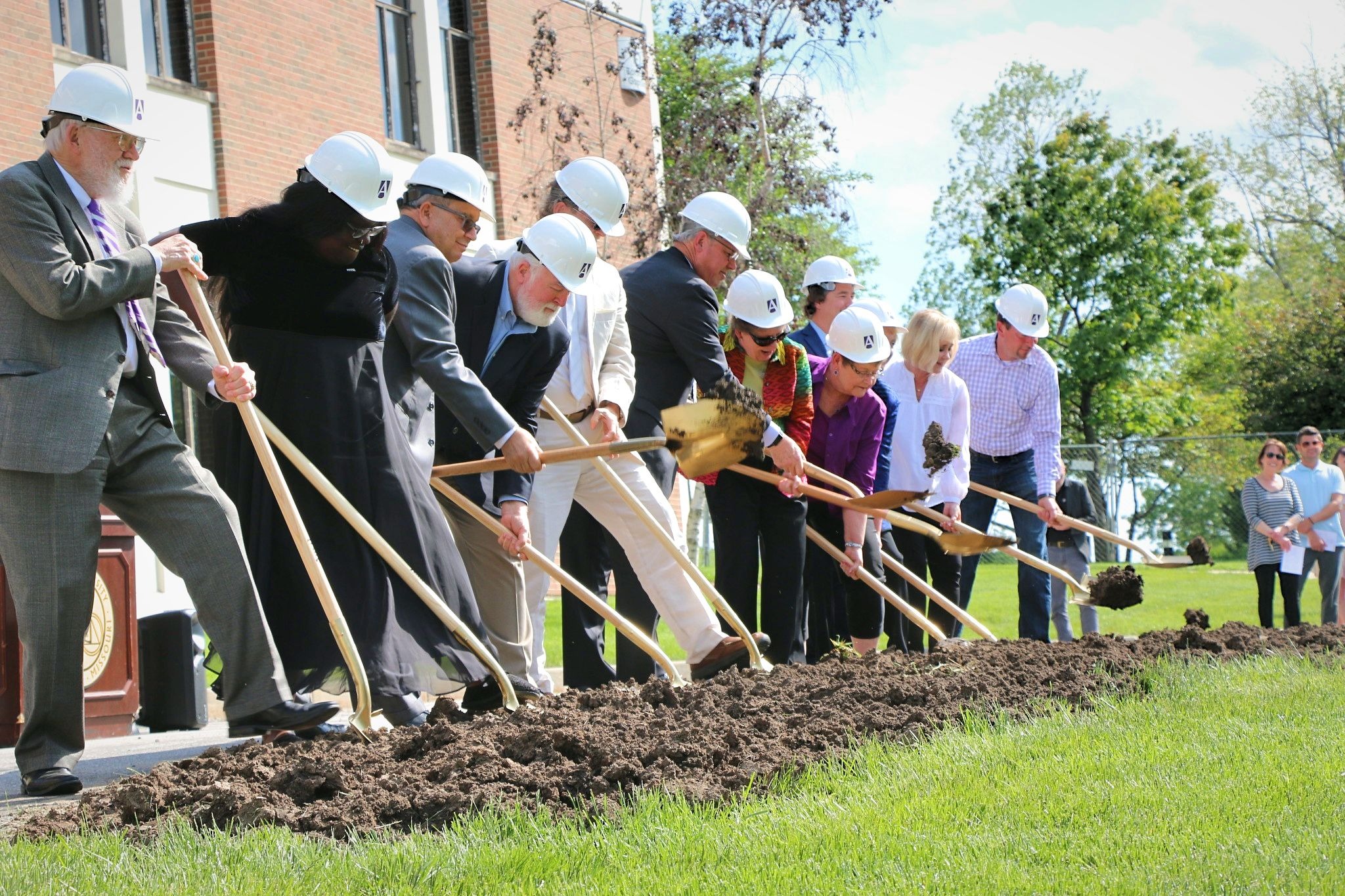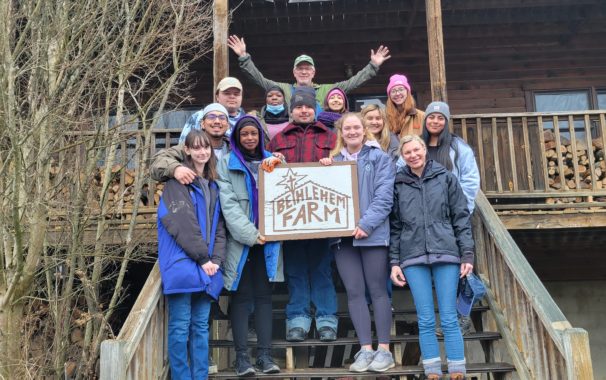If you could go anywhere for spring break, where would you go? Eleven Avila students volunteered to spend their break serving at Bethlehem Farm in Pence Springs, West Virginia. “Bethlehem Farm is a Catholic Community in Appalachia that transforms lives through service with the local community and the teaching of sustainable practices.”
The group was led by Dave Armstrong, director of university mission & ministry., and Debbie Olson-Morrison, Ph.D., program director & assistant professor of social work. Armstrong has taken groups to the farms in West Virginia about 25 times. “This year will mark the 20th anniversary of the first trip I took in March 2003. I send groups every year except for 2021,” said Armstrong. This year was special because Olson-Morrison partnered with Armstrong to bring a group of Social Work students in addition to the group he was already taking.
Groups were tasked with daily chores from feeding chickens to working in the garden and serving the community with home projects like building ramps, painting, roofing, building additions, putting up new siding, repairing wood rot, insulating, and even the occasional bathroom or kitchen repair or refurbishment. “We were immersed in the four gospel cornerstones of community, prayer, simplicity, and service,” said Armstrong.
“It was a week of challenges. There is nothing comfortable getting out of bed early to complete chores before breakfast, working all day outside in the cold (one day, it was even snowing), or even not being able to take hot showers like we are used to. The students showed patience, perseverance, and resilience,” said Olson-Morrison.
Avila student, Morgan Pettlon, said, “I learned so much about giving back to the Earth that gives us so much. Living on the farm is a whole new way of living, and the only way to truly understand is to spend a week (or more) at the farm! On the worksites, I learned about digging post holes and the importance of making sure everything is square in the beginning. I learned how to put joists up to support the floor of a loft. I gained many valuable skills about construction that I didn’t know before!”
Avila student, Asma Abdullah, said, “The entire trip was a positive learning experience that can only truly be appreciated by being there. However, I can say that I learned about using human waste for composting. I’ve heard of composting using food, and I’ve heard of using human waste to generate heat in homes but not to fertilize the soil for gardening. It amazed me how this connected to our ability as people to contribute back to each and not just take from it. The whole cycle of life was put into play here, along with an appreciation for it.”
“My goals for the students were to (1) become exposed to the unique culture in West Virginia; (2) develop an understanding of poverty and substance use in the region and how the region is unique in systematic issues contributing to both; (3) work with people who experience these issues first hand through service work; and (4) be exposed to sustainable living and farming practices, since ecological and environmental factors influence personal, community and global well-being,” said Olson-Morrison.
The trip included several highlights for both students and faculty. “I think something that stood out was being able to talk with the individuals that were receiving the services we were there to provide. Being invited into their homes and hearing their stories is a humbling experience, one that I am truly honored to receive,” said Olson-Morrison.
“A social worker from the county was invited to share her experiences with us. She talked about how she was able to make a difference in her community through acts like providing meals to children, advocating for life-saving medications in the region, and providing a safe space for people to receive support. Her passion for social work seemed limitless, and she inspired me through her ability always to hold hope for her community.”
“The highlight of the trip for me was getting to meet so many new people as well as strengthen relationships with people who I already knew,” said Pettlon.
For Abdullah, it was, “the “welcome home” that all of the volunteers were met with when they returned back from the work sites. The simple act of meeting someone at the car, helping them unload their supplies, and welcoming them with a hug and kind words made each day something to look forward to. Who wouldn’t want to come home when kindness awaits them at the end of a grueling day? This step of greeting people connects to one of their cornerstones, which is community. They exemplified what a community is and how building and keeping the love in a community should and can be shown in each act that one does. A community should be welcoming, and the caretakers at Bethlehem Farm most certainly were.”
“It was hard not to be stunned by the region’s beauty. We were given a “star tour” on a no-moon night. Without the interference of light pollution, never before had we known so many stars were visible to the human eye. This was beyond words amazing,” said Olson-Morrison.
“I would like to thank Dave (Armstrong) for facilitating this experience for us. Without him, we wouldn’t have even known about this opportunity. We all pushed the limits of our comfort zone, but the experience taught us so much about sustainable living, community, and Catholic social teaching. I think I speak for all of us when I say we came back to Kansas City with more appreciation for our lives,” said Olson-Morrison.
Students who attended were Hinda Abuker, Morgan Pettlon, Cesar Valderrama, Nyegal Chancy, Maria Rodriguez, Asma Abdullah, Christian Hernandez, Genesis Santillan, Alexandra Nedblake, Elizabeth Greer, and Julia Butler.

